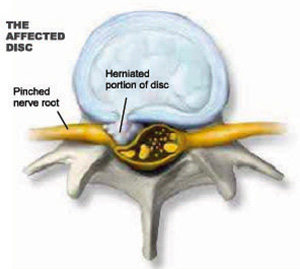
Procedures
Discogram in NJ - So You Can Live Pain-Free
Outpatient diagnostic procedure designed to allow the physician to view and assess the internal structures of a disc in order to determine the exact source of the back & neck pain.
Schedule an AppointmentDiscogram Facts and Information
This diagnostic procedure is used to determine whether pain is caused by one or more spinal discs. The procedure involves pressurizing suspected discs with an injection of sterile contrast to visualize the disc structures and reproduce your pain. Discography helps the specialist plan a course of treatment.
What Happens During a Discogram?
In preparation for the procedure, the patient lies on the procedure table equipped with an x-ray unit called a fluoroscope. Medication is administered through an intravenous (IV) line to relax the patient. The patient must remain awake enough to communicate with the physician during the testing. A local anesthetic is used to numb the skin and all the tissue down to the disc area.
Guide Needles Inserted
A guide needle is inserted through the anesthetized track to the outer edge of the disc. The physician uses the fluoroscope to identify the target disc. A smaller needle is inserted through the guide needle into the center of the disc. This may be repeated for several discs.
Discs Tested
Once all the needles are placed, the discs are pressurized one at a time with contrast dye. With each injection, the patient may feel either pressure or pain. If the patient feels pain, the physician will ask the patient to compare it to the pain the patient has been experiencing. If the pain is the same, this may indicate a diseased disc. After each disc is tested, images are taken with the fluoroscopic unit.
Needles Removed
The needles are removed. The patient may be taken for a CT scan to obtain additional images of the disc structures.
After the Procedure
Discography usually takes less than an hour to perform. The procedure may cause discomfort for a few days. The patient is usually advised to take acetaminophen or ibuprofen and to ice the affected area several times daily until the discomfort subsides.
After the procedure, you will be transferred to a recovery area where a specially trained nurse will monitor your recovery and pain levels. Generally, patients are discharged within 15-30 minutes. Your doctor will have you schedule a follow-up visit and explain limitations, if any, on your physical activity.
Possible Conditions
Disclaimer: the content of the Website is for general informational purposes only and does not constitute advice of any kind. See the full User Agreement here.

Take Back Your Life
Fill out the form or simply give us a call to book your appointment and start feeling better.

Contact Us
Speak with one of our team members right away to get answers to your questions about insurance verification, scheduling an appointment, and our clinic locations.
(732) 955-0655Visiting our Book Appointment page you can instantly request an appointment at any of our Seacoast Spine and Sports Medicine. We offer Free Insurance Verification before your appointment.
Learn how to easily get to the Seacoast Spine and Sports Medicine.
